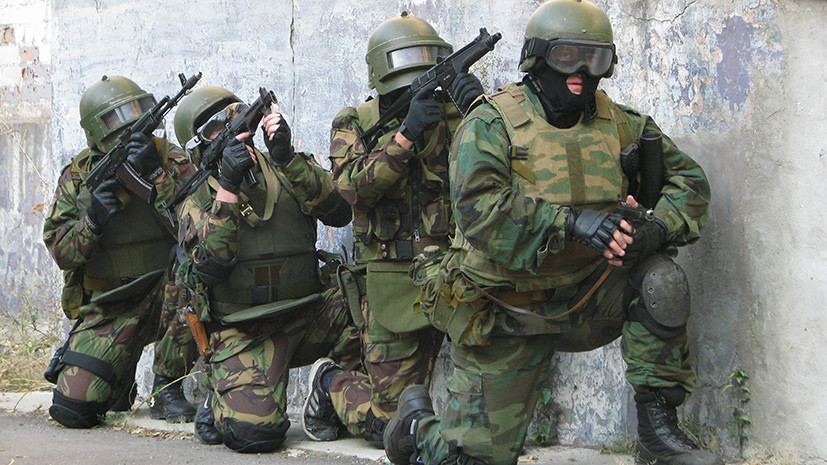Since the beginning of the year, Russian intelligence services have prevented 39 terrorist attacks and eliminated 49 terrorist cells that planned attacks. This was announced by Director of the FSB of the Russian Federation Alexander Bortnikov at the opening of the plenary session of the eighteenth Meeting of the heads of the special services, security agencies and law enforcement agencies of the FSB partner states in Sochi.
“This year, 39 terrorist attacks were prevented at the preparation stage, 32 militants were neutralized, 679 were detained, 22 are inclined to abandon terrorist activities,” Bortnikov said.
According to him, the Russian special services, together with foreign colleagues, have caused tangible damage to the terrorists. Nevertheless, structures such as the Islamic State * and Al Qaeda ** retained the potential for criminal activity, Bortnikov stated.
“As a result, in 2019 alone, more than 1.5 thousand attacks were committed around the world, as a result of which about 7 thousand people were killed and injured," the FSB director said.
To combat this, the international community needs to increase interaction and increase the exchange of information about terrorists, Bortnikov is convinced. It is important at the same time, the head of the FSB of the Russian Federation noted, not to politicize such cooperation and not to apply double standards.
“There should be no place for double standards in approaches to solving the problem of terrorism. Ultimately, only bandits win from flirting with the bandits. They must be prosecuted according to the law, and in the case of armed resistance - destroyed on the spot. We believe that there can be no other opinion, ”he stressed.
To gallery page
Modern technology in the service of terrorists
Bortnikov also said that the possible use by terrorists of new technologies poses a threat. In particular, in the near future, special services will face an improvement in the performance of drones and the possibility of attacks by a group of UAVs under one control - as part of the so-called swarm, he warned.
“Improving the flight characteristics of drones, their ability to deliver various weapons, including chemical and toxic substances, and to act as an autonomous swarm will become a real challenge for us in the near future,” the FSB director emphasized.
Bortnikov sees another use of terrorists as the use of communications by the terrorists, which does not depend on mobile operators or the Internet.
The militants, he said, also provide additional opportunities for artificial intelligence technologies designed to analyze large amounts of data, including those obtained illegally.
According to the FSB, the heads of terrorist organizations are increasingly trying to acquire the latest weapons and satellite communications. Bortnikov also emphasized that the introduction of malware into the infrastructure of states poses a particular risk.
“At the same time, the ability of hacker communities controlled by terrorists to disguise their attacks as targeted hostile acts committed by any state is fraught with the emergence of real political and military conflicts,” Bortnikov emphasized.
Terrorism financing
The heads of terrorist organizations are increasingly collecting money through electronic payment services and crowdfunding platforms, the FSB director said.
“The so-called confidential cryptocurrencies are used, which guarantee the anonymity of transactions, in contrast to bitcoin and its counterparts,” Bortnikov said.
The FSB director emphasized that the drug business, illegal trade in arms, natural resources and cultural property, extortion, the organization of illegal migration channels, the slave trade, and the sale of counterfeit money remained the main source of income for the militants.
So, in Russia it was possible to block the accounts of more than 5 thousand people suspected of involvement in the activities of international terrorist organizations, Bortnikov said.
The fight against terrorists in the virtual space
Bortnikov suggested that the special services of different countries identify the main routes for the transfer of militants and establish the identity of everyone, "including his Internet profile." But in this area, according to the head of the FSB, law enforcement agencies are faced with the refusal of IT companies to cooperate.
“The main communication tool between the bandits is still the Internet messengers with high cryptographic protection. In this regard, we consider a reluctance of a number of the world's leading IT companies to cooperate with special services in the field of information security, ”he said.
The FSB director also called on foreign partners to combine the efforts of national intelligence agencies to identify and block on the Internet materials of extremist and terrorist content.
It is important to prevent terrorists from luring new members into their ranks, Bortnikov emphasized. He warned that adolescents with difficulties in socialization are becoming vulnerable to recruiters.
“Recently, the problem of“ school terrorism ”has become aggravated in a number of countries. Some teenagers, who usually have difficulties with socialization and are motivated by personal revenge, not only participate in the propaganda of massacres in closed online communities, but also commit terrorist acts, ”he said.
Bortnikov also said that, Russian law enforcement agencies identified more than 5.5 thousand Russian citizens who went abroad to fight in the ranks of international terrorists. Against almost 4 thousand such people, criminal cases have been instituted. The FSB monitors these people and arrests them upon return.
“Of the 337 fighters who returned to our country, 32 were arrested and 224 were convicted. In relation to the rest, evidence is being collected, ”Bortnikov concluded.
* “Islamic State” (IG) - the isation body was recognized as terrorist by decision of the Supreme Court of the Russian Federation of December 29, 2014.
** Al-Qaeda - the organization was recognized as terrorist by decision of the Supreme Court of the Russian Federation of February 14, 2003.

